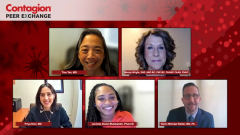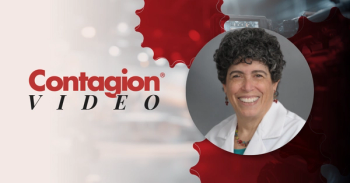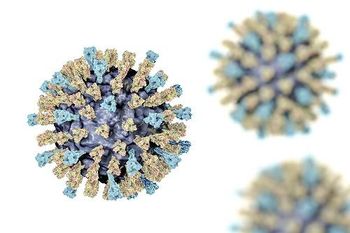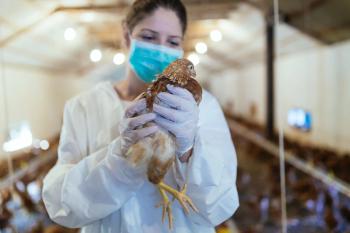
Patient Hesitancy to Respiratory Infection Vaccines
Experts address patient hesitancy around both COVID-19 and influenza vaccines.
Episodes in this series

Tina Tan, MD: Kevin, what are you experiencing with patients being vaccine hesitant or really antivaccine?
Kevin Michael Reiter, MD, PA: We don’t do a lot of vaccinations in the urgent care world aside from flu vaccines, but we did COVID-19 vaccines in the early stages of the pandemic. Folks come to us for the vaccine, so we’re not doing a lot of the primary care or well visits where we have those difficult discussions like Wendy mentioned, those challenging discussions with vaccines like HPV [human papillomavirus] and those that are less desirable and come with other stigmas and are harder to talk about to some degree. We really don’t experience that in the urgent care world. In the primary care world where I work, it was in the underserved clinics where I did my residency, where I go back. That population is also very trusting, Central South American, migrants. We have a low level of hesitancy in that clinic for vaccinations, which is fantastic. It makes our lives a lot easier not having to have those hard conversations, folks who are not vaccine hesitant, not vaccine resistant. I have to tell you, from the areas where I practice and vaccinate, I don’t experience that hesitancy as some other folks on the call do.
Tina Tan, MD: Priya, what has been your experience? Being in a very large metropolitan area and seeing patients of all ethnicities, have there been issues when you are, say, in your outpatient clinic and you’re offering vaccines to individuals, and they’re saying they don’t want it?
Priya Nori, MD: Great question. It’s so loaded because a vaccine conversation is not static, as you all know. It has evolved so much with time. There were times in the beginning when we would approach things almost like, wow; we have these lifesaving vaccines that are going to totally change the paradigm. I can’t believe you don’t want to take this. What is not getting through? How could you respond that way? We were sort of aghast. Then we started learning more and more about how these vaccines were working, what they were doing, and what their role became in the pandemic armamentarium. Now the conversation has shifted so much, while we know that they’ve been hugely protective at preventing morbidity and mortality, there are still so many open questions. The biggest one that pertains to the COVID-19 vaccine that still remains, especially for community members is, “Am I going to have to get this dang shot every single year?” I don’t have a great answer for that right now. I’ve been following the vaccine closely. I certainly look into what thought leaders are saying about this. I think we’re at the point where we can’t vaccinate ourselves out of this particular pandemic, but what we can do is be very open and up front with our patients about what we do know and what we don’t know. That’s generally been my approach.
Now, the same patient I saw, let’s say in March of 2021, and I was sort of like, are you crazy? How could you not take this shot? Now I visit with them again, and thankfully they’re still alive. They’ve probably survived a couple of episodes of COVID-19, but now the conversation has shifted, and now we’re all kind of back in the same boat. That barrier between the unvaccinated and the vaccinated has narrowed and the conversation has changed. However, when we’re talking about things like measles or influenza, and so many of these lifesaving childhood vaccines, I have a much more hard line in the sand when it comes to that counseling. Diseases have come back to New York state because people choose not to vaccinate. Things that we thought were gone; the last we heard about some of these things was in the Bible. Come on, that’s pretty black and white there. I would say it’s certainly illness specific, but I love having this conversation with patients, and hopefully I manage to sway some folks.
Tina Tan, MD: That’s fantastic. JAM [Jacinda], I had another question for you. What do you do when you are having the faith leaders talk to their parishioners about how good vaccines are, and the parishioners aren’t listening? I’ll give you an example. I saw a patient yesterday, a 17-year-old, who came with his mom. I offered them the influenza vaccine. The mom looked at her child, and asked, “Do you want this? Because I’m telling you, you should not get it.” Those were the mom’s words directly. He was about ready to get the flu vaccine until his mom said that. What do you do in those types of situations?
Jacinda Abdul-Mutakabbir, PharmD: I think the biggest thing I’ve worked on trying to relate to the faith leaders, and I guess at this point we’ve really trained them in, is how to provide very targeted messaging, and the various patients you’ll come across. Some folks may never want the vaccine, will never get the vaccine for whatever reason, and that’s OK. The approach I always take within the community is that it’s not my job to force anyone into anything. To the community members, I always say it’s not my job to force you to get the vaccine, and it’s not your job as a faith or community leader to force anyone to get it, but it is our job to be good stewards of the information we have. One thing I try to motivate them with is, at the end of the day, you may have people like that. You may have folks who don’t want to get the vaccine when you first offer it or when you first communicate with information. I always tell them that fact-based information is the way to go. That’s the way that I go when I relay the information to the community, and the way that I have trained or taught the faith and community members to do as well: be fact-oriented. This is the number of people who are suffering from the virus. This is the number of people who are vaccinated in our particular community. This is the number of people who remain unvaccinated and are in the hospital. I work to keep it fact-based, and opinions out of it.
The other thing I talk to them about is, although people may not get it the first time, don’t beat yourself up. Give yourself some grace because you don’t know what that information you provided could save. They may go back home and say, “This person tried to give me the vaccine, and they said how many people were suffering from the virus, and blah, blah, blah, blah.” Then the family member may hear it and say, “That’s a concern to me. Maybe I’ll get the vaccine whether they get it or not.” That’s happened to me, where I’ve had people who have come to several webinars or have come to hear us talk several times about the vaccines, and then that fourth time they say, “All right, I’m here. I support this. I want to get vaccinated.” There are different steps, but I always say, don’t beat yourself up if you don’t see the reception that first go-round.
Transcript edited for clarity
Newsletter
Stay ahead of emerging infectious disease threats with expert insights and breaking research. Subscribe now to get updates delivered straight to your inbox.






































































































































